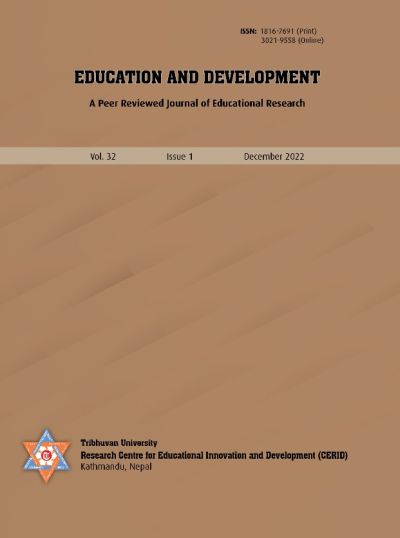Cognitive Development Assessment of Pre-Primary School Children in Pokhara
DOI:
https://doi.org/10.3126/ed.v32i1.61558Keywords:
cognitive development, intellectual development, mean difference, multiple regression analysisAbstract
This study focused on evaluating cognitive development in urban pre-schoolers in Pokhara. It aimed to assess the socioeconomic and cognitive statuses of early childhood development (ECD), and explored influencing factors. The research involved 160 children aged 4-5 from eight ECD centers in Pokhara, with ECD facilitators, parents, and principals as respondents. It used Jean Piaget's and Lev Vygotsky’s theories, employing mixed methods. The research tools involved observation checklist sand interview guidelines whereas the statistical analysis involved regression analysis-ANOVA. The findings showed that most kids were from Dalit and Janajati communities, relying on daily wage labor and lacking permanent homes. About two-thirds of them displayed cognitive progress. The influential factors included teacher training, home learning environment, family income, and housing ownership. Overall, their cognitive development was unsatisfactory in the researched context. The study suggests towards collaboration among stakeholders and policy changes for improvement.
Downloads
Downloads
Published
How to Cite
Issue
Section
License
Copyright (c) 2022 The Author(s)

This work is licensed under a Creative Commons Attribution-NonCommercial 4.0 International License.
CC BY-NC 4.0. This license requires that reusers give credit to the creator. It allows reusers to distribute, remix, adapt, and build upon the material in any medium or format, for noncommercial purposes only.




